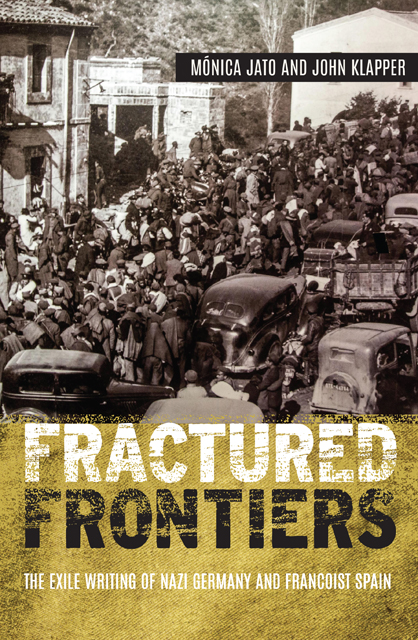Conclusion
Published online by Cambridge University Press: 18 January 2023
Summary
Neither the literature of Outer Emigration, extensive and substantial though it is, nor that of Inner Emigration can lay sole claim to being the German literature. German literature will develop from the merger of these two literary currents, which have remained separate for twelve years.
The very concept of exile thus revolves about interchange. Viewing the absent entity requires an invocation of its cultural or axiological opposite… . Since the thought of one implies, and is incomplete without, the other in any context regarding national reconstruction, a transactional process prevails in the exilic concept itself.
This book has argued against an approach to exile in Nazi Germany and Francoist Spain that views territorial and inner exile as distinct and even contrary entities. An unproductive preoccupation with the ethical integrity of exile has proved distinctly unhelpful in elucidating the nature and function of writing in the two contexts and in promoting a holistic understanding of exile. Instead, we have proposed an integrationist model of cultural exile, with a view to providing a fuller and more nuanced picture of the field than has been achieved hitherto. This has illuminated the commonalities, inflected by national particularity, between the German and Spanish cases, and the shared cultural approaches, inflected by the respective exilic position, of inner and territorial discourses of opposition to dictatorial regimes. It has focused on parallels between inner and territorial exile and on dialectal variation, thus also illustrating the plurality and heterogeneity of the experience of exile. This holistic approach has further emphasized the adoption of a common “borderized” cultural practice, which, in the case of territorial exiles, involved a claim to rescuing and upholding the “true” culture of the nation, and, in the case of inner exiles, originated from writers’ peripheral status and their subversive use of language as they distanced themselves from but, at the same time, sought to reappropriate the hegemonic discourse.
The German and Spanish timescales clearly diverge, and the political, ideological, economic, and social differences between the two countries should not be understated. Nevertheless, comparison of the two contexts, based on close reading of primary texts, reveals striking similarities and promotes insights into forms of exilic response to oppression.
- Type
- Chapter
- Information
- Fractured FrontiersThe Exile Writing of Nazi Germany and Francoist Spain, pp. 211 - 215Publisher: Boydell & BrewerPrint publication year: 2020



